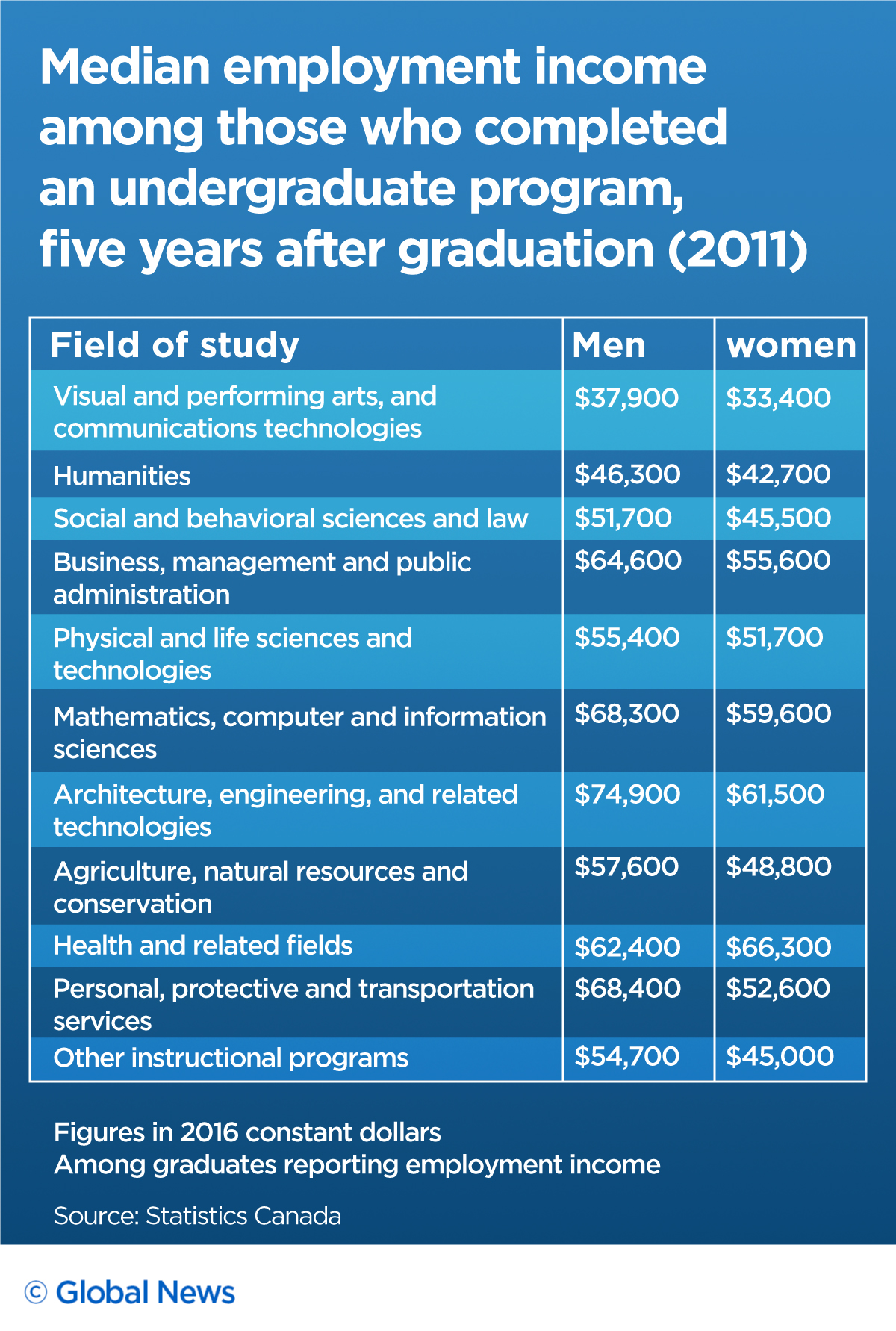Men are earning significantly more money than women with the same level of post-secondary education in the years after they enter the workforce, a new study from Statistics Canada shows.

In a report released last week, researchers found males with undergraduate degrees or college diplomas had higher median earnings than females with the same qualification in each year from 2010 to 2014.
The federal agency tracked the incomes of new graduates using tax data and enrollment records. More than 900,000 students under 35 earned a credential in the period studied.
Women who completed any bachelor-level degree earned a median income of $41,600 two years after finishing school, compared with $47,200 for men, a difference of $5,600.
For college grads, the disparity was even larger. The median income was $43,900 for men and $36,200 for women, a $7,700 gap.
WATCH: The best-paying jobs you can get without a university degree

According to the data, the gender difference continued later into the graduates’ careers. Five years after finishing an undergraduate degree, men from the class of 2011 earned $63,000, while women earned $49,700.
Researchers suggested their findings could be influenced by a wide number of factors.
The study, after all, only looked at income — it did not consider the graduates’ occupations or fields or study, or whether their employment was related to their training.
It also did not account for the effect of part-time work on overall earnings.
WATCH: Wage gap continues to separate men from women

Sarah Kaplan, professor at the Rotman School of Management in Toronto and director of the school’s Institute for Gender and the Economy, said she thinks the gender gap identified by the study mainly boils down to men and women taking on different jobs — rather than a case of women being shortchanged for doing the same work as men.
“The story is that women are being segregated through a whole series of social processes … into jobs that just pay less,” she said.
“And so that most of what we’re seeing is people going into different sectors.”
READ MORE: The gender pay gap costs Canadian women almost $16,000 a year
Within industries, she added, women are also being funnelled into lower-paying positions with fewer opportunities for advancement.
“Even when male and female graduates both go into the tech sector, women are often segmented off into the marketing part of the tech sector, or they do user interface. They aren’t given opportunities in the core coding jobs,” she said.
The 2010-2011 cohort data shows that the gap persists even between men and women who obtained bachelor’s degrees in traditionally male-dominated, high-paying fields such as business, science and engineering.
In fact, out of a dozen fields of undergraduate study broken down in the report, male graduates out-earned women in 11 of them five years after graduation. All except health, where women earned a median salary of $66,300, versus $62,400 for men.
Kaplan said that early salaries can have a long-term impact on earnings, especially if companies ask what a new employee made in their previous job.
“That’s going to be a really important marker if your first job is at a lower salary, and that accumulates over a lifetime,” she said.





Comments